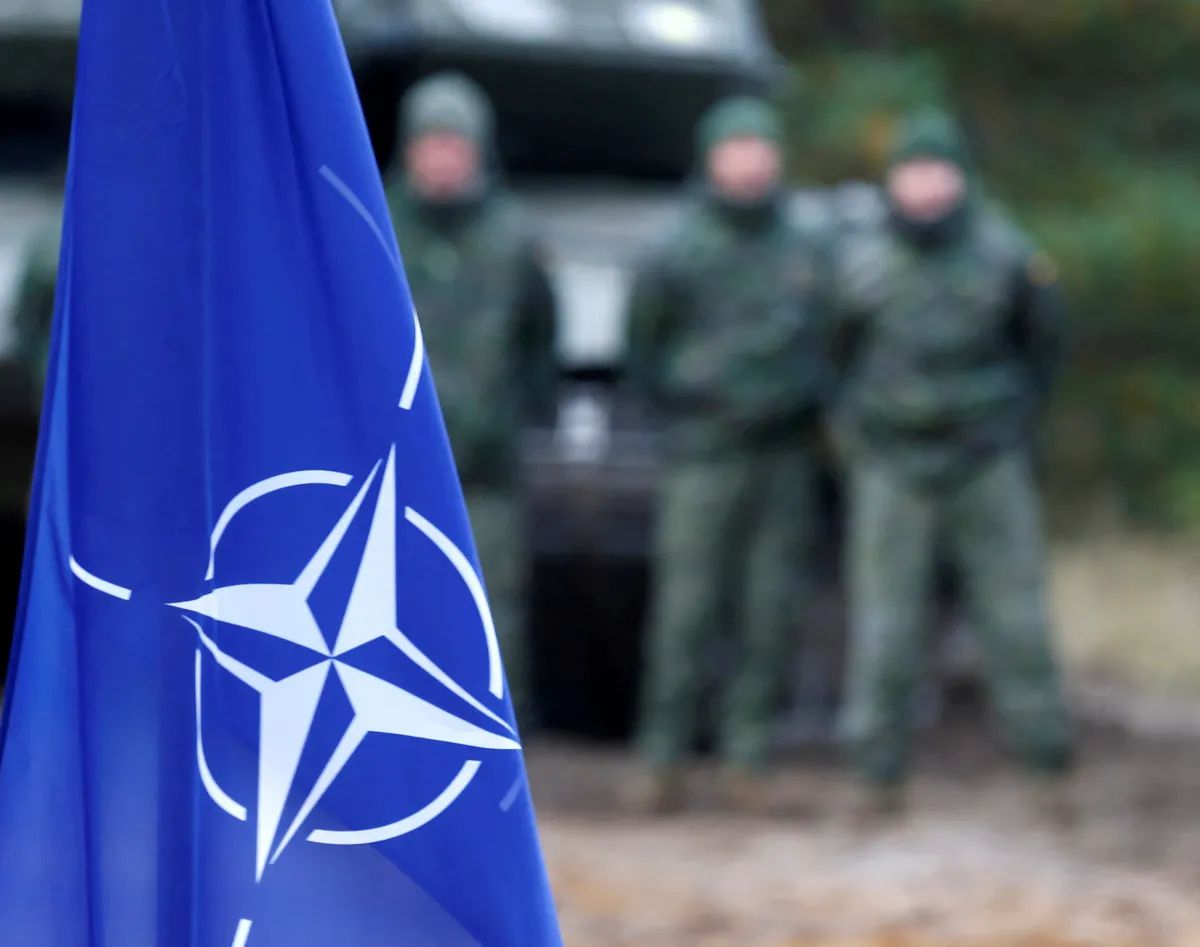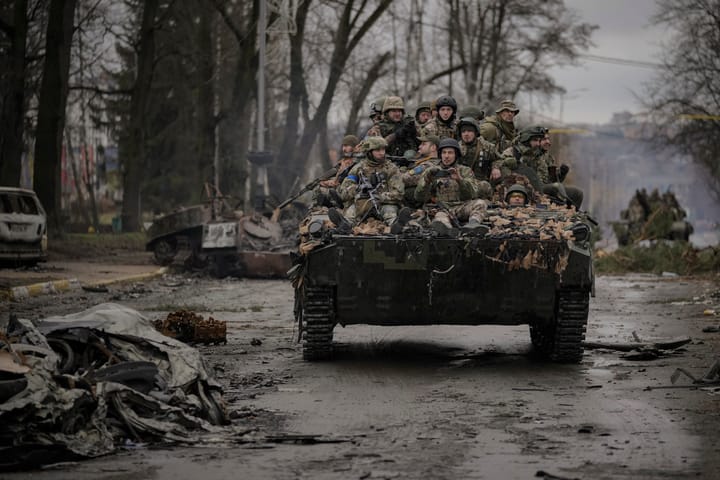America Was Always NATO's Biggest Strength and Its Greatest Weakness
Trump’s second term has exposed NATO’s long-ignored weakness: its entire defense framework was always dependent on America’s commitment, and that commitment was never guaranteed.

Donald Trump's administration has wasted no time dismantling decades of established NATO policy. Just weeks into his second term, Defense Secretary and National Disgrace Pete Hegseth declared Ukraine's NATO membership "unrealistic" and its hopes of restoring internationally recognized borders "illusionary." The subsequent U.S.-Russia talks in Riyadh - conducted without Ukraine or any European allies present - drove home a brutal, ridiculous reality: NATO's defense structure rests on a foundation far more fragile than its architects ever admitted: the United States.
The real revelation here isn't Hegseth's bluntness or even the Riyadh talks themselves. It's how quickly the entire NATO defense framework buckled under pressure from a single administration change. Within days of Trump retaking office, European leaders scrambled to float alternative security arrangements. France called an emergency meeting of European powers. Germany's Scholz insisted no deals could happen "over Ukraine's head" - even as the deals themselves were being brokered in Saudi Arabia.
We've spent decades convincing ourselves that NATO represented an unshakeable bulwark of Western security. The truth? NATO always depended entirely on U.S. commitment - a commitment that could have evaporated with a single election. How did we miss such an obvious structural weakness? The same way we miss most institutional vulnerabilities: by mistaking temporary stability for permanent strength.
Look at NATO's actual structure. Article 5 - the famous "attack on one is an attack on all" provision - sounds weighty until you realize it contains no automatic triggers, binding commitments, or specifically required responses. Each member decides for itself what constitutes appropriate aid. The deterrent effect relies on potential adversaries believing that the U.S. would intervene militarily to defend, say, Estonia. The moment that belief wavers, the whole house of cards trembles.
This vulnerability traces back to NATO's origins. The alliance was built around American power during the Cold War when U.S. commitment seemed unchangeable. European members grew comfortable under the American security umbrella. They never developed truly independent defense capabilities. Why would they, when U.S. protection seemed guaranteed? But that comfort bred complacency. That complacency bred weakness.
Now reality bites. Trump's return exposes how European security remained utterly dependent on American political whims. A few words from a U.S. Defense Secretary sent European bonds tumbling. A single meeting in Riyadh had European leaders desperately proposing alternative security frameworks. The emperor had no clothes - and everyone could suddenly see it.
The counterfactuals write themselves. What if NATO had developed robust European defense capabilities independent of U.S. involvement? What if the alliance had built automatic triggering mechanisms into Article 5? What if European members had maintained serious military spending instead of relying on American largesse? But these questions miss the deeper point: NATO's fatal flaw was always there, waiting to be exposed.
Some argue this crisis might strengthen NATO in the long run. They point to increased European defense spending, closer cooperation between European militaries, and new urgency around building independent capabilities. Nice theory. But watch what European leaders are doing - hedging, exploring bilateral arrangements, discussing new security frameworks. They see the writing on the wall. NATO's credibility has taken a hit it may never recover from.
The broader lesson extends beyond NATO. Any institutional structure that depends entirely on one player's voluntary commitment contains the seeds of its destruction. We see this pattern in currency unions, trade agreements, climate accords - anywhere stability relies on continued buy-in from a dominant power. The moment that power's commitment wavers, the entire system faces a crisis.
Europe now confronts hard choices. Building independent defense capabilities would require massive spending increases, closer integration, and painful political choices. Continuing to rely on U.S. protection means accepting perpetual vulnerability to American domestic politics. Neither option looks particularly appealing. But pretending the old NATO framework still provides meaningful security guarantees seems increasingly delusional.
The architects of NATO created an impressive and entirely necessary alliance for their time. They built a structure that helped maintain European peace for over half a century. But they failed to account for how domestic political shifts in a single country could unravel the entire framework. To be blunt, they failed to account for American stupidity. That oversight now haunts Europe.
Where does this leave us? NATO won't disappear overnight. The alliance still exists on paper. Military cooperation continues. But its core strategic purpose - providing credible security guarantees to European members - has been compromised. Once that kind of credibility breaks, it's nearly impossible to restore. Just ask any currency trader who lived through the ERM crisis.
The next few months will prove critical. European leaders must decide whether to double down on NATO or pursue alternative security arrangements. But they can no longer avoid confronting the alliance's fundamental weakness. Trump's return didn't create this vulnerability - it merely exposed what was always there.
What Europe's leaders build next may look very different from the NATO we knew.
But if the shift in alignment forces Europe to develop genuine strategic autonomy, build defense capabilities independent of U.S. commitment, and create actual security guarantees, Donald Trump's artificial crisis may yet serve a purpose.


